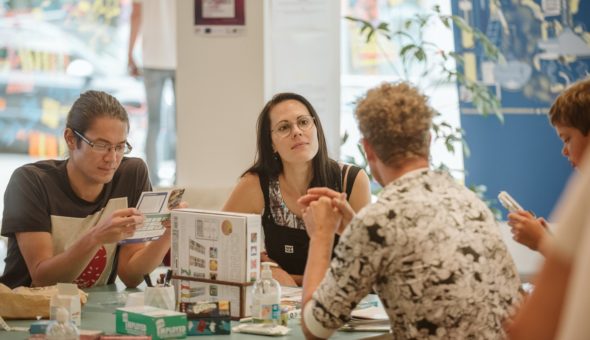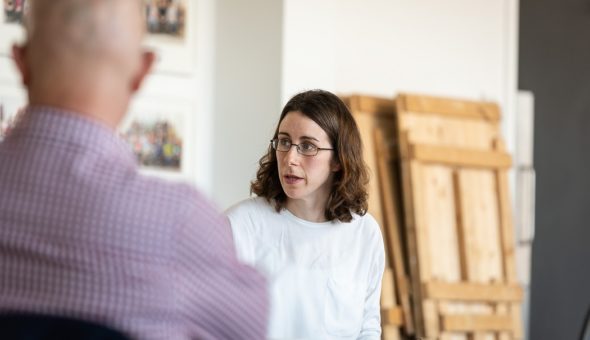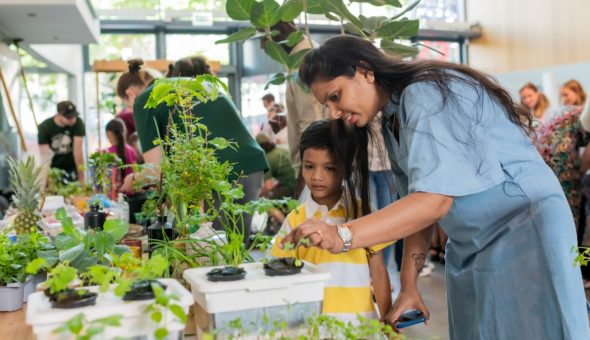New to ParticipatoryResearch@Bath? This case study we created as part of reporting to Research England in February 2024 is a handy introduction to the project.
Overview
ParticipatoryResearch@Bath is an action-research project working to create a culture of participatory research at the University of Bath by enhancing and/or creating the conditions for meaningfully and equitably involving people in research.
Context
Prior to receiving the funding, the University of Bath had pockets of participatory research practice, however, the work was not joined up or linked to the strategic goals of the University. In recent years, the importance of improving the connections between research and society has increased across the sector as a means to ensure research better meets the needs of communities and users of research so they are more likely to implement research findings. Participatory approaches to research ensure that everyone has the opportunity to contribute to and benefit from research that directly affects them. This change has driven a notable increase in demand for support, which has prompted the Public Engagement Unit to rethink its remit (read more in the Research with/by/for society - embracing the opportunity blog). The funding has allowed us to connect these changes more strategically.
Approach
ParticipatoryResearch@Bath is led by the Public Engagement Unit and builds on their experience undertaking culture change work - (Engaged360@Bath and ChallengeCPD@Bath) - and the experience delivering the Community Matters community-based participatory research project. As a central, long-established team, the Public Engagement Unit provides foundations and continuity for this work. Oversight is provided by the University’s Research Culture Working Group to ensure the work speaks to the wider institutional strategy.
What happened
The broad scope of the Participatory Research Funding Allocation (£86k 2021/22, £86k in 2022/23 and £87k in 2023/24) provided an opportunity for the Public Engagement Unit to respond to internal and external drivers that were creating the needs within the academic community. The allocation’s flexibility and light-touch reporting enabled the team to be responsive in creating the conditions for participatory research to thrive. The funds have been spent over the three years of the project to date on staffing (£87k), commissioning work and research (£76k), engaging the services of external providers for professional development (£29k) and mobilising participatory research by distributing funds to academic colleagues and community organisations (£67k).
There are three phases to ParticipatoryResearch@Bath:
Phase 1 - Investigating (March - August 2022). This phase involved working with researchers and local communities. Over the initial six months the team worked to understand the barriers and challenges academic colleagues encounter when undertaking participatory research and worked with community groups to better understand community need, barriers, and interests.
Phase 2 – Scoping (December 2022 to July 2024). Work over this phase has built on findings from phase one and involves scoping new mechanisms for mobilising participatory research through: a community/academic co-created grant scheme, a peer network to share practice, the development of a digital platform for involvement in research, and commissioning interview and desk-based research. The team will work closely with existing community initiatives, such as the UK Research and Innovation-funded Twerton and Whiteway Community Research Network, to carry out a programme of co-created engagement activities.
Phase 3 – Embedding - will happen between August 2024 and July 2025 as we embed the work into our institutional practices.
Findings
The key takeaway from ParticipatoryResearch@Bath is that for academics and communities to be ‘participatory ready’, they need to be supported to reach a point where they have the skills to undertake collaborative research in ways that are meaningful for them and meets their goals and motivations.
We have established that there is no single way to undertake participatory research, and we draw heavily on the Spectrum of Public Participation. Instead, the choices of when, how, and for what purpose to adopt participatory approaches should reflect factors such as academic career stage, experience of engagement, and disciplinary tradition; and is also grounded in the interests, needs, and goals of communities. The role of the Public Engagement Unit is to support people to progress along the spectrum of public participation to the point that works for them and their research by encouraging them to consider aspects of their research that could be participatory. Working in this way will enable a broad range of academic disciplines to embrace public participation in their research to ensure that research meets the needs of broader society and is more likely to be used by citizens and communities outside of academia.
Findings from phase one of ParticipatoryResearch@Bath blog and the Listening to Communities blog are good places to read the detail the project’s findings. There is more on the PatricipatoryResearch@Bath project page.
Dean Veall is Deputy Head of Public Engagement at the University of Bath
Respond



